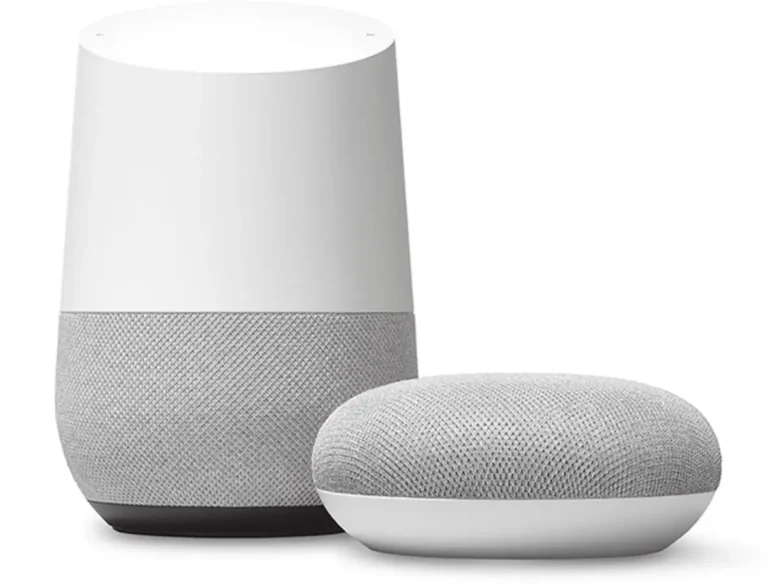Voice assistants are a prime example of how technology is making our lives easier. These digital butlers can listen to our commands, perform various tasks, and provide real-time information simply by speaking. Voice assistants are becoming an essential part of the modern home. They can play music, control smart home devices, set reminders, and answer questions. As voice assistants evolve, they become smarter, faster, and more powerful, making our daily lives smoother and more efficient than ever .
The Rise of Voice Technology in Everyday Life
Recently, voice assistants have become increasingly common in homes around the world. Originally considered a desirable feature on smartphones, voice assistants have now become essential components in smart speakers, smart TVs, appliances, and even cars. These assistants are not only reliable but also indispensable thanks to continuous improvements in speech recognition technology and the increasing integration of smart ecosystems. People can now use voice technology to turn lights on and off, check their calendar, create shopping lists, and even control their home security system—all without any interaction. Since we stopped typing information manually and switched to voice commands, the way we use technology has changed dramatically.
Voice Assistants as Centralized Home Automation Systems
Besides answering questions and playing music, voice assistants have become an essential part of home automation. They are the brains behind all your smart devices and ensure they work together. You can use voice commands to set routines, such as dimming the lights, locking the doors, and playing relaxing music, all at the same time. These assistants work with many different brands and devices, allowing you to customize your smart home to your needs. This automation makes everything easier, saves you time, and even makes your home more secure, because you can control it with simple voice commands.
Easy Control of Media and Entertainment
Voice assistants are often used to control your media at home. Simply say what you want to do, such as play your favorite music, switch to a specific TV channel, or check the latest news. Alexa and Google Assistant are examples of smart assistants that can connect to streaming services like Spotify, Netflix, YouTube, and Amazon Prime Video. This allows you to enjoy hands-free entertainment. Some smart speakers even have built-in screens or can be connected to a TV, turning them into interactive hubs for watching videos, looking up recipes, or video chatting.
Making Everyday Tasks Easier and Faster
Voice assistants are excellent for tasks that would otherwise take more time and effort. Need to set a timer in the kitchen, but your hands are full? Just tell your assistant. Want to make a grocery list while you’re hungry? Just say it out loud, and it’s saved instantly. Voice assistants simplify daily life by sending reminders and alarms, updating calendars, and providing weather forecasts. They’re incredibly useful in today’s homes because they respond quickly, understand natural language, and work across multiple platforms.
Voice Assistants Enable Smart Home Security
Since security is a top priority in today’s smart homes, voice assistants contribute to the security of your home. You can control smart locks, security cameras, doorbells, and motion sensors with voice commands or routines. Some assistants can alert you when something unusual happens and even allow you to view live video on compatible devices. Voice assistants can call specific people or activate security systems in emergencies. This additional control brings comfort, particularly when you’re away from home or need to remotely monitor a loved one.
Accessibility and Inclusivity Through Voice Technology
Voice assistants also improve the lives of people with disabilities or limited mobility by making technology more accessible. For people who have difficulty typing or using physical interfaces, voice commands offer an easier way to interact with their surroundings. You can use your voice to adjust lights, send messages, control the thermostat, and more. This makes daily life more comfortable and autonomous. This technology ensures that everyone, regardless of their ability, can benefit from developments in the smart home, making the world more inclusive.
Conclusion
Today, voice assistants act as digital butlers, making everything easier and more convenient, connecting all our devices into a smart environment. Each smart assistant has its own unique capabilities. For example, you might choose Alexa for its compatibility with a wide range of devices, Google Assistant for its powerful search capabilities, Siri for its seamless integration with Apple products, or Bixby for its ability to control smart home appliances. These digital assistants are no longer just cool gadgets from the future; they are practical tools that transform the way we live, work, and communicate at home. As technology advances, voice assistants will be able to perform more functions, making them even more useful in our daily lives.
FAQs
1. Do voice assistants need Wi-Fi?
Yes, voice assistants need a stable internet connection to function properly, as they use cloud services to process requests.
2. What are voice assistant routines?
A routine is a series of actions that occur when you issue a command. For example, by saying “good morning,” you can turn on the lights, check the weather, and play music.
3. Are voice assistants useful for seniors?
Yes, many seniors find voice assistants helpful for managing their daily tasks, getting medication reminders, and staying in touch with family members via voice or video chat.
4. How can I protect my privacy with a voice assistant?
You can change the privacy settings in the app, mute the microphone when you’re not using it, and regularly review or delete your voice history.
5. What’s the difference between smart speakers and voice assistants?
A voice assistant is software that listens to, processes, and responds to voice commands. A smart speaker is hardware.




